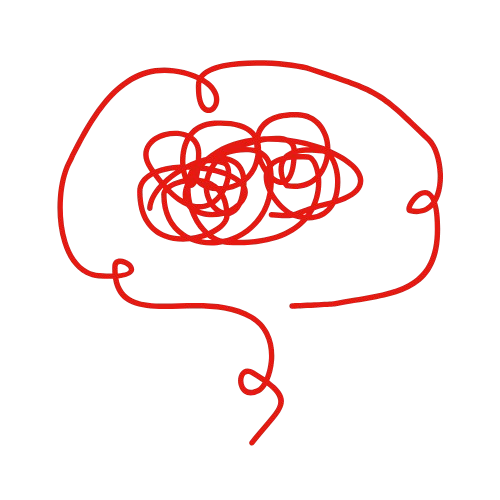- Published on
The Silent Language of Notification Anxiety
- Authors

- Name
- Mindmire
- @Md_Khokon_Mia
The Silent Language of Notification Anxiety
Have you ever noticed how your phone seems to have a life of its own, buzzing and pinging like a hyperactive digital pet demanding constant attention? It's like having a needy toddler in your pocket — always there, always wanting something, and never quite satisfied.
In our quest for connectivity, we've woven a tapestry of notifications that now serves as the backdrop to our daily lives. Each sound, each vibration, is a tiny call to action, a digital Pavlovian bell that we've trained ourselves to respond to with immediate attention. And therein lies the rub: the incessant noise that was meant to keep us informed has become a source of unending anxiety.
Consider the scene: you're having a quiet dinner with a friend when suddenly there's a chime. It's not yours, but the reaction is universal — a momentary pause, eyes flickering towards the source, a mental checklist of the possible urgency. It's as if we've developed a sixth sense for notifications, a kind of phantom limb that itches to be checked even when it's not ours.
This constant barrage of alerts has ironically left us more disconnected than ever. We're tethered to our devices, yet untethered from the present moment. The conversation we were having? It's been relegated to the background, fighting for survival against the allure of the digital world.
What does this say about us, about our modern culture? Perhaps it's a reflection of our deeper need for validation and connection, a search for meaning in a sea of digital noise. The irony is palpable: in our pursuit of virtual engagement, we've sacrificed the art of real, undistracted presence.
And what of the anxiety? It's a subtle, insidious thing. The background hum of potential interruption creates a low-level stress that we've normalized. It's the modern equivalent of waiting for the other shoe to drop, except this shoe is a constant barrage of updates, reminders, and alerts that never quite stop.
This isn't a judgment on technology — after all, our devices have brought us closer to distant loved ones and opened up worlds of knowledge at our fingertips. But perhaps it's time to reassess our relationship with these digital companions and the silent language of anxiety they speak.
Imagine, for a moment, a world where notifications are not the masters of our attention but humble servants. Where the pings and buzzes are merely suggestions, not commands. In this world, we reclaim our ability to be truly present, to engage with the world in front of us without the constant pull of the virtual.
The challenge, then, is to find balance — to embrace the connectivity that technology offers while setting boundaries that protect our peace of mind. It's a delicate dance, but one that promises a richer, more mindful existence.
So the next time your phone buzzes, take a moment. Pause. Decide if that alert truly needs your attention right now. And in that pause, reclaim a piece of your serenity from the clutches of notification anxiety. Because sometimes, the most powerful response is no response at all.